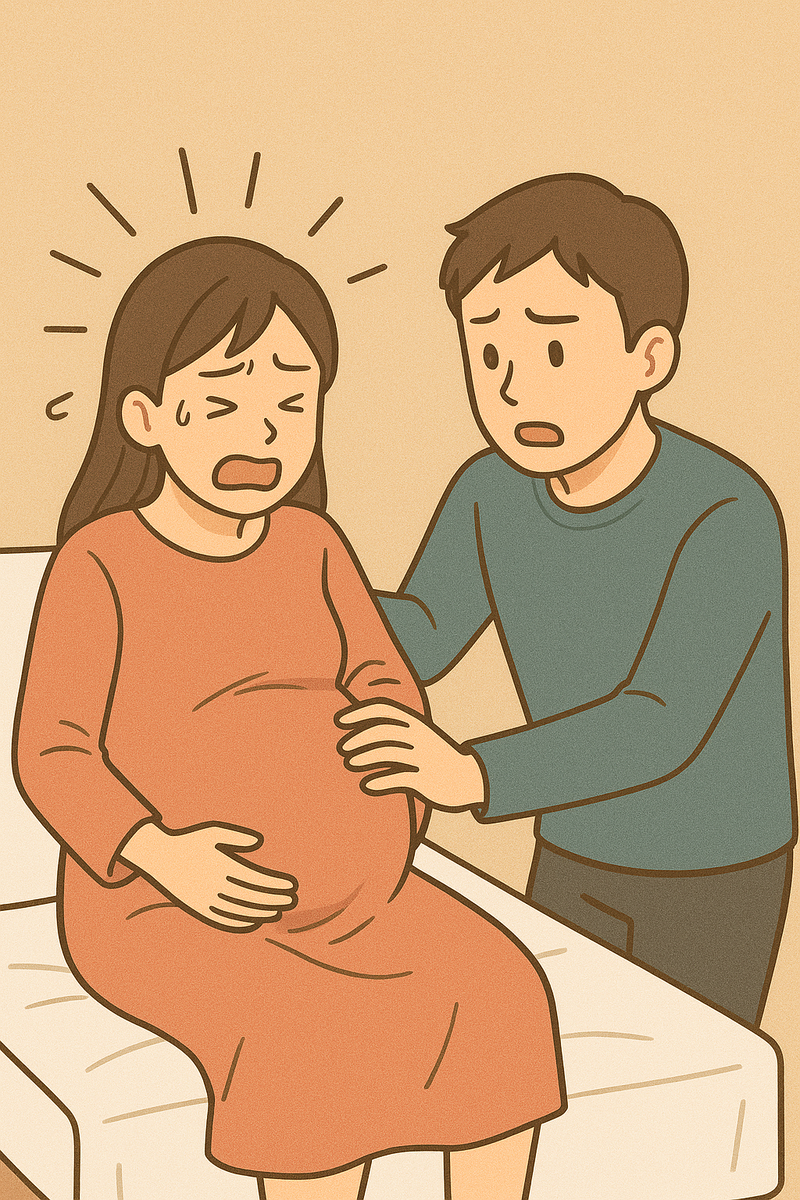
This post was translated from Japanese to English using AI.
I’m sorry if some expressions don’t sound quite natural.
This article is based on our personal experience as a couple.
It does not provide any medical or professional advice.
We simply hope that our story might offer some comfort or a bit of reassurance to anyone going through a similar situation.
Thank you for reading.
Since my previous post was about what happened on the day of the birth from my wife’s perspective, this time I’d like to share the story from my point of view as her husband.
Here’s the post from my wife’s perspective:
On the day our baby was born, I was working as usual. Since I work fully remotely, I was working from home that day.
If you’re interested in the story behind my remote-work situation, please check the link below.
In the morning, my wife seemed to be in more pain than usual, but she was still going about her day as normal. I could tell things were getting closer, but I honestly didn’t think the baby would be born that day.
I think the first clear change happened sometime in the afternoon. The way she reacted to the pain had definitely worsened—you could see the discomfort on her face.
At that point, I asked her, “Should we call the clinic?” But she said, “I’m still fine. It’s going to be a battle of endurance from here, so I need to eat,” and she started eating a bowl of rice with furikake.
She kept saying she was strong with pain so she’d be okay, but watching her eat heartily despite everything made me think, Women really are strong…
Around this time, I contacted my parents to let them know it might be getting close.
Both my wife and I have driver’s licenses, but we haven’t driven in years and don’t own a car, so I wanted to give my parents a heads-up in case they could drive us.
If the timing didn’t work out, we planned to use the “maternity taxi” service we had registered for.
Before my wife got pregnant, I didn’t even know maternity taxis were a thing.
To put it simply, you pre-register your home address and your clinic’s address, and when the time comes, you just call and they take you straight to the clinic. They even put protective sheets on the seat in case your water breaks on the way.
Registration is free, so personally, I recommend signing up just in case.
In the end, my parents were able to drive us, so we didn’t use the maternity taxi.
About two hours after my wife finished eating, things suddenly escalated.
The first major change was that she became unable to walk on her own because of the pain.
Around then, I contacted my company and my current client to let them know I needed to leave early. I had told them in advance that this could happen, so they let me log off without any issues.
Looking back, I had always thought of remote work as something beneficial after the baby arrived, but in a moment like this—right before the birth, when everything gets chaotic—being able to respond flexibly was a huge advantage. (Whether it actually helped is another story, though! lol)
From here, we headed to the clinic—but I’ll save that for the next post.
Thank you for reading.